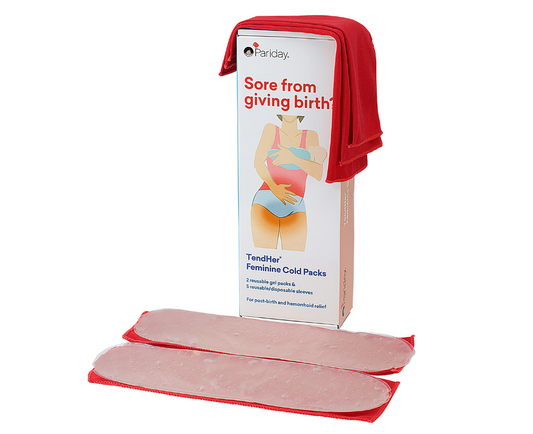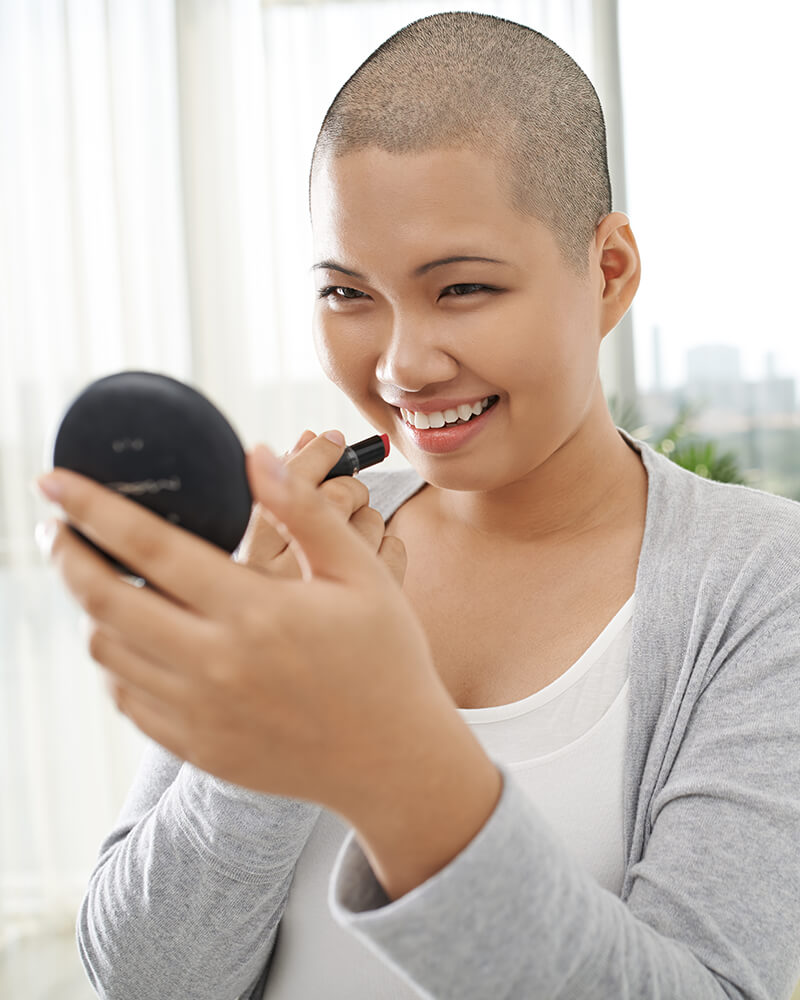
Menopause
Let’s talk about every woman’s favorite topic - menopause!
You’re rolling your eyes now, right? But the truth is, menopause can be one of the most significant and self-defining events in a woman’s life. And even though all women go through it, many women find the experience isolating and overwhelming.
At The Pelvic Hub we think it’s time to get over the embarrassment, shame and terrible cliches. We think it’s time to celebrate menopause. And we think it starts with getting proactive about the changes that are happening to our bodies, especially our pelvises and vaginas.
Written by Emma McGeorge
Related Conditions
Want to learn more about related conditions? Follow the links below to gain a better understanding of the symptoms and treatments.
Defining Menopause
This part is a bit boring, but it’s important because it underpins our whole understanding and most people are getting it wrong.
Perimenopause is the transition from your reproductive years to menopause. It can start as early as 35 or as late as 59, and can last between 5 to 15 years. Most women start their menopausal transition bwtween 45 and 55 years of age. This is what most people mean when they refer to themselves or someone else as “menopausal”.
But menopause is actually just one day. One day! The 12 month anniversary of your very last period, which is the technical end of your menstrual cycle. No more menstrual periods or menstrual cramps for you! Instead you can trade menstrual pain in for other types of symptoms, but we’re here to help ease the transition because better days are ahead!
Perimenopause and Menopause Symptoms and Changes
If you’re in perimenopause you’ve probably got a whole lot of changes going on. We all know about the fatigue, hot flashes and mood swings (thanks TV and pop culture!). But there are a whole range of other lesser-known biological symptoms and changes that can occur.
The effect of menopause on your pelvis and vagina probably isn’t something you’re gossiping about with friends over a glass of wine (or maybe it is, in which case, GO YOU!).
Either way, we’re here to get real with you about some fairly typical pelvic health related symptoms of perimenopause and menopause that are associated with genitourinary syndrome of menopause (GSM), including:
- Vaginal dryness, burning or itching
- Vulvovaginal atrophy (VVA)
- Vaginal bleeding or pain, sometimes severe pain, during sex (dyspareunia or vaginismus)
- Lowered libido
- Urinating more often or having the urge to urinate when you don’t really need to go
- Irritable bowel syndrome or other issues with bowel movements
- Recurrent urinary tract infections (UTIs)
- Incontinence.
Vulvovaginal atrophy (VVA) is one of the most unpleasant aspects of GSM and women rarely discuss the problem with their health care provider.
Symptoms of VVA include:
- Vaginal dryness, burning, itching
- Pelvic pain or abdominal pain, sometimes severe abdominal pain
- Thinning of the vaginal walls and loss of suppleness and stretch in the tissues
- Painful sex (dyspareunia).
All of these symptoms are associated with declining estrogen levels that cause structural and functional changes in the vaginal tissue, including changes in pH, decreased blood flow to tissues, shortening and narrowing of the vagina, and reduced vestibular sensation.
Who would have thought that estrogen would play such an important role in vaginal tissue health?!
If a woman is finding sex painful their pelvic muscles may spasm involuntarily and make vaginal penetration more painful, difficult or impossible. You may even experience vaginal bleeding in some cases. This involuntary muscle spasm is called vaginismus. Vaginismus is, unfortunately, fairly common in women who have gone through menopause.
All of the things that can cause pain during sex can complicate and exacerbate vaginismus. And anxiety and emotions have a big role to play. Once a person starts experiencing painful sex their fear and apprehension about sex and penetration can actually cause vaginal spasms. This in turn makes sex more painful and difficult and so the negative cycle continues.
Menopause Treatments to Help You Love Your Pelvis
If you’re experiencing any of these symptoms you might feel like you’ve got a long way to go to love your pelvis. But we’re here to help you find a better way to manage your symptoms, gain control and turn things around. We want you to stop feeling like your body is betraying you and start feeling in control of your health and wellbeing (and maybe even start enjoying sex again).
.jpg)
If you’re not already getting professional help we strongly recommend seeing a qualified professional who specializes in pelvic health (like a women’s health physio or gynecologist) for treatment and care. Always see a doctor or other medical expert. After a physical examination to rule out other sources of abdominal pain, such as ovarian cysts or uterine fibroids, and reviewing your medical history, these professionals will make sure you are getting the right treatment for your body.
Does your vagina feel dry or fragile?
We have all natural lubricants and vaginal moisturizers from Intimate Rose to get things feeling better again, in the midst of menopause. They’re natural, nourishing and made from the highest quality ingredients to help you feel good about taking care of your body and helping with menopausal symptoms.
Are you experiencing burning, throbbing, itching or stinging?
TendHer reusable perineal cooling pads are perfect for cooling the most sensitive and delicate area of a woman’s body. Comfortable, cooling and discreet. No-one will know you are wearing it— it can be our little secret. And as an added bonus you can also use your cooling pad as an eye mask on those hot flush days or to cool (or warm!) and soothe any area of your body that may need a little TLC.
Do you wee a little when you sneeze, laugh or run?
Although stress incontinence is a really common symptom of menopause it is not a normal part of ageing that you simply have to put up with. Kegel trainers for menopause can help strengthen your pelvic muscles to improve your continence, tone your pelvic floor and maybe even give you better orgasms.
To fully regain control of your pelvic health you need to have the awareness and ability to both contract and relax your pelvic floor. With Intimate Rose Kegel Exercise Weights, you’ll feel the difference after just 15 minutes a day.
Do you experience pain during penetrative sex?
Using an intimate wearable that allows you to control the depth of penetration during sex can help you manage, or even eliminate, pain and other symptoms related to penetrative pain. The Ohnut is designed to feel just like skin. It’s so comfortable (like a gentle hug) you and your partner will barely notice it’s there. And because you no longer have to worry about whether penetration will hurt, the Ohnut allows both you and your partner to focus on what matters most, connection, enjoyment and fun.
Have you been diagnosed with vulvovaginal atrophy (VVA), dyspareunia or vaginismus and been recommended for vaginal dilation therapy?
Vaginal dilation can help to manage VVA, dyspareunia and vaginismus by gently stretching the vaginal walls which helps to maintain or improve vaginal capacity and gradually makes the vagina more elastic and flexible over time.
In the case of dyspareunia or vaginismus, dilators can be used as part of treatment to help retrain the muscles to relax. Women start with a size that is comfortable and gradually progress as able.
Our vaginal dilators for menopause are premium, top-of-the line products made from medical grade silicone making them safe and easy-to-use. They’re soft but firm and can be warmed to body temperature for ultimate comfort.
It’s Not All Doom and Gloom
Some perimenopausal and menopausal women actually feel more confident in their bodies compared to their younger selves (can you believe it?). With the right help, support and menopause treatment this could be you too.
Curious what supplements and herbs could help you transition out of your reproductive years? Check out this guide from renowned pelvic health physical therapist, Dr. Amanda Olsen.
Related Products
-
 Sold out
Sold out -

-
 Sold out
Sold out -
 Sold out
Sold out -

-
 Sale
Sale -
 Sale
Sale -













